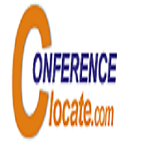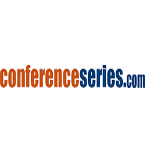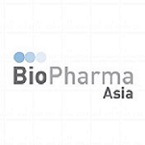Renowned Speakers

Bo Feng
University of Hong Kong Hong Kong
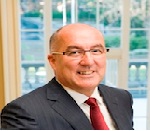
Peter Silburn
The University of Queensland Australia
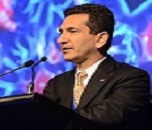
Babak Kateb
Society for Brain Mapping & Therapeutics and Brain Mapping Foundation USA
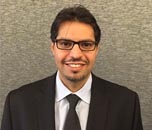
Fahad AlKherayf
University of Ottawa Canada

Claude Michel Wischik
TauRx Therapeutics UK

Jun Liu
Sun Yat-sen University China

Philip Choo
National Healthcare Group, Singapore
Recommended Global Neuroscience Webinars & Conferences
Europe & UK
Asia Pacific & Middle East
Canada
NEURO SCIENCE 2024
- Welcome Message
- About Conference
- Benefits of Participation
- Sessions/Tracks
- Participation Options
- Market Analysis
- Visa Trip Advisor
Welcome Message
We are thrilled to extend a warm welcome to you on behalf of the organizing committee for the 7th World Conference on Neuroscience, scheduled to take place in London, UK, on July 15-16, 2024
Your participation in this esteemed event, which aims to bring together some of the foremost experts in Neuroscience, fills us with great honor and gratitude. This year's conference offers an unparalleled opportunity to share knowledge, engage in stimulating discussions, and learn from leading professionals in the field of Neuroscience from around the globe.
London, renowned for its inventiveness, sophistication, and gracious hospitality, sets the perfect backdrop for our gathering.
As we convene in London, we encourage you to seize the networking opportunities, participate in insightful conversations, and establish enduring connections with fellow attendees. Your active involvement is essential to ensuring the success of this event.
We extend our heartfelt appreciation to all our sponsors, speakers, and participants whose contributions have made this conference possible. Together, we can make significant strides in the fight against Neuroscience and contribute to a healthier future.
Hosting the 7th World Conference on Neuroscience is a privilege, and we are excited to embark on this remarkable journey with you. We hope your time in London is both professionally and personally enriching.
Participating in this conference presents an exceptional chance to network with peers, exchange knowledge, and stay abreast of the latest advancements in Neuroscience.
Registration and abstract submissions for the upcoming conference are now open!
We cordially invite you to join us as an exhibitor and sponsor, as your participation will greatly enhance the success of our event.
About Conference
Conference Series welcomes all the speakers and delegates from around the world to attend the "7th World Conference on Neuroscience” (NEURO SCIENCE 2024) on July 15–16, 2024, in London, UK. This incorporates provocative keynote introductions, Oral talks, Poster introductions and Exhibitions.
NEURO SCIENCE 2024 is an exceptional occasion that encourages world-renowned researchers, Doctors, scientists, and students to gather and explore Challenges and solutions faced by the Social Community.
Theme: “Neuroscience Advancements: A Look into the Future of Brain Research”
|
Conference Short Name |
Dates |
Venue |
Benefits of Participation
Advantages of Participating at our conference
- The advantage is that the Speaker & Abstract pages created in Google on your profile under your name would get worldwide visibility
- Our robust online publicity attracts 30000+ users and 50000+ views to our Library of Abstracts, which brings worldwide exposure to the researchers and speakers who participate in our conferences
- Meet and exchange ideas with hundreds of like-minded professionals who are leaders in Neuro Science.
- All the conference participants will have a different excuse to participate in a one-to-one meeting with eminent Speakers and renowned keynote speakers.
- A unique opportunity to listen to what worldwide researchers are talking about at our Keynote sessions by the world’s most eminent researchers in the field of Neuro Science.
- Neuro Science intensive conference schedule, you will access strategic gift planning knowledge and expertise that’s worth its weight from an impressive array of recognized professionals.
- Top Industries Representation of Industrial Leaders, where you get a great opportunity to meet and discuss with the Industrial Leaders in person
- Exposure to symposiums, Workshops on career development and Preconference workshops in all major countries
- Nominations for the Best Poster Award
- Outstanding Young Researcher Award
- Group Registration benefits
Benefits of Participation- Speaker
- Worldwide acknowledgment of Researcher’s profile
- Obtain professional development credits
- Explore the best in Cutting Edge Research
- Make Lasting connections at Networking and Social Events
- An opportunity to give a one-page advertisement in an abstract book and flyer distribution, which eventually gets 1 Million views and adds great value to your research profile
- Learn beyond your field of interest—a change to know more about the new topics and research apart from your core subject of Neuroscience.
- We provide a unique convergence of Networking, Learning and Fun into a single package
Benefits of Participation- Delegate
- Professional Development: Uplift the knowledge and skills
- Conference attendance inspires, rejuvenates, and energizes delegates
- Your participation at our conference will be helpful for a new approach and ideology that can be utilized to extend the outcomes of companies or industries.
- Opportunities to meet through an online webinar for Neuro Science researchers and experts in the same field and share new ideas
Benefits of Participation- Sponsor
- Exposure to the international atmosphere will increase the odds of getting new business
- Opportunity to showcase the new technology, new products of your company, or the service your industry provides to a broad international participant.
- The world's No. 1 platform to showcase Neuro Science.
- Increase business through lead generation through our conference participants.
- Building a successful business takes a lot of time, effort and drive, so it’s always good to have a network of colleagues and associates to draw energy from people who share a similar drive and objective.
- Neuro Science conferences create opportunities for greater focus and reflection that could help you take your business to the next level.
- Benchmarking key strategies for business and moving it forward
- Get answers to your business questions and challenges from credible individuals at our conference
Young Scientist Benefits:
- Our conferences provide the best platform for your research through oral presentations.
- Share the ideas with both eminent researchers and mentors.
- Young Scientist Award reorganization certificate and memento to the winners
- Young Scientists will get appropriate and timely information from this Forum.
- Platform for collaboration among young researchers for better development
- The Award should motivate participants to strive to realize their full potential, which could in turn be beneficial to the field as a whole.
Sessions/Tracks
Track 01: Neuroscience
Neuroscience is a rapidly expanding field within biology dedicated to investigating the structure and function of nerve cells and fibers that comprise the nervous system. This interdisciplinary domain delves into the intricate relationship between psychology and biology, exploring physical connections, psychological changes, and the study of neurological disorders. Encompassing cellular and molecular biology, evolution, biochemistry, physiology, anatomy of the nervous system, as well as specialties like computational neuroscience, behavioral neuroscience, and cognitive neuroscience, it draws from various disciplines such as engineering, linguistics, mathematics, medicine, psychology, physiology, computer science, and chemistry. Neuroscientists, specializing in molecular, biochemistry, physiology, and nervous system anatomy, conduct experiments to comprehend the nervous system's role and structure, particularly in relation to behavior and learning.
Related Conference: Neuroscience Conferences | Neurology Conferences | Top Neuroscience Conferences | World Neuroscience and Neurology Conferences | Best Neuroscience Conferences | Neuroscience and Brain Disorders Conferences | Neurology Meetings | Neuroscience Meetings | Neuroscience Conferences Europe | Neuroscience Annual Meetings | Psychology Conferences | Brain Disorder Conferences | Neurology Congress | Neuro Conferences | Psychiatry Conferences | Neuroscience Events
Related Associations and Society: American Society for Neural Transplantation and Repair (ASNTR) | American Society for Neurochemistry (ASN) | American Society of Electroneurodiagnostic Technologists (ASET) | American Society of Interventional & Therapeutic Neuroradiology (ASITN)
Track 02: Neurology
Neurology, a medical specialty dedicated to the exploration of nervous system disorders, focuses on the intricate network governing bodily functions. The nervous system, a sophisticated regulator directing body activities, consists of two major divisions—the central and peripheral systems, including their coverings with blood vessels and effector tissues like muscles. A neurologist, a specialized doctor, is equipped to examine, diagnose, and treat neurological conditions impacting the brain, spinal cord, and nerves. Although neurologists don't perform surgeries, patients requiring surgical intervention are referred to neurosurgeons. The diagnostic process involves a thorough medical history and a neurological evaluation encompassing cranial nerves, sensation, cognitive control, motor power, reflexes, coordination, and movement.
Related Conference: Neuroscience Conferences | Neurology Conferences | Top Neuroscience Conferences | World Neuroscience and Neurology Conferences | Best Neuroscience Conferences | Neuroscience and Brain Disorders Conferences | Neurology Meetings | Neuroscience Meetings | Neuroscience Conferences Europe | Neuroscience Annual Meetings | Psychology Conferences | Brain Disorder Conferences | Neurology Congress | Neuro Conferences | Psychiatry Conferences | Neuroscience Events
Related Associations and Society: American Society for Neural Transplantation and Repair (ASNTR) | American Society for Neurochemistry (ASN) | American Society of Electroneurodiagnostic Technologists (ASET) | American Society of Interventional & Therapeutic Neuroradiology (ASITN)
Track 03: Mental Disorder / Mental Illness
Mental disorders, also referred to as psychiatric disorders or mental illnesses, are medical conditions affecting an individual's thoughts, emotions, behavior, and overall mental well-being. This encompasses a broad range of conditions, such as anxiety disorders, mood disorders, psychotic disorders, and more. The impact of mental disorders extends significantly to a person's daily life, relationships, and overall functioning. These conditions often arise from a complex interplay of genetic, environmental, and psychological factors. Addressing mental disorders involves various approaches, including therapy, medication, lifestyle changes, or a combination of these. Reducing stigma, enhancing awareness, and improving access to mental healthcare are crucial steps in overcoming the challenges associated with mental disorders and supporting individuals in leading fulfilling lives.
Related Conference: Neuroscience Conferences | Neurology Conferences | Top Neuroscience Conferences | World Neuroscience and Neurology Conferences | Best Neuroscience Conferences | Neuroscience and Brain Disorders Conferences | Neurology Meetings | Neuroscience Meetings | Neuroscience Conferences Europe | Neuroscience Annual Meetings | Psychology Conferences | Brain Disorder Conferences | Neurology Congress | Neuro Conferences | Psychiatry Conferences | Neuroscience Events
Related Associations and Society: American Society for Neural Transplantation and Repair (ASNTR) | American Society for Neurochemistry (ASN) | American Society of Electroneurodiagnostic Technologists (ASET) | American Society of Interventional & Therapeutic Neuroradiology (ASITN)
Track 04: Alzheimer’s and Parkinson’s Diseases
Alzheimer's and Parkinson's diseases stand out as prevalent neurodegenerative disorders, each exhibiting distinct characteristics and consequences for patients. Alzheimer's is chiefly identified by progressive memory loss, cognitive decline, and behavioral shifts, stemming from the buildup of abnormal protein deposits like beta-amyloid plaques and tau tangles in the brain. Conversely, Parkinson's disease manifests with motor symptoms such as tremors, rigidity, and bradykinesia, attributed to the degeneration of dopamine-producing neurons. Despite not fully understanding the exact causes, ongoing research explores the underlying mechanisms and potential treatments for these diseases. Timely diagnosis and appropriate medical attention can enhance the quality of life for those affected, and ongoing research holds promise for more effective therapies and interventions in the future.
Related Conference: Neuroscience Conferences | Neurology Conferences | Top Neuroscience Conferences | World Neuroscience and Neurology Conferences | Best Neuroscience Conferences | Neuroscience and Brain Disorders Conferences | Neurology Meetings | Neuroscience Meetings | Neuroscience Conferences Europe | Neuroscience Annual Meetings | Psychology Conferences | Brain Disorder Conferences | Neurology Congress | Neuro Conferences | Psychiatry Conferences | Neuroscience Events
Related Associations and Society: American Society for Neural Transplantation and Repair (ASNTR) | American Society for Neurochemistry (ASN) | American Society of Electroneurodiagnostic Technologists (ASET) | American Society of Interventional & Therapeutic Neuroradiology (ASITN)
Track 05: Brain Stroke
A stroke, also referred to as a brain stroke or cerebrovascular accident, occurs when there is a significant reduction or interruption in blood flow to a specific region of the brain. This medical emergency results in restricted blood flow, leading to a deprivation of nutrition and oxygen to the brain cells, causing them to undergo irreversible damage within minutes. Due to the inability of brain cells (neurons) to regenerate, the harm incurred is lasting. A stroke transpires when the blood flow to a segment of the brain is either severely reduced or completely cut off, depriving the brain tissue of essential oxygen and nutrients. Recognizing the urgency of this situation, seeking prompt medical assistance is crucial, as early intervention can mitigate complications and limit brain damage.
Related Conference: Neuroscience Conferences | Neurology Conferences | Top Neuroscience Conferences | World Neuroscience and Neurology Conferences | Best Neuroscience Conferences | Neuroscience and Brain Disorders Conferences | Neurology Meetings | Neuroscience Meetings | Neuroscience Conferences Europe | Neuroscience Annual Meetings | Psychology Conferences | Brain Disorder Conferences | Neurology Congress | Neuro Conferences | Psychiatry Conferences | Neuroscience Events
Related Associations and Society: American Society for Neural Transplantation and Repair (ASNTR) | American Society for Neurochemistry (ASN) | American Society of Electroneurodiagnostic Technologists (ASET) | American Society of Interventional & Therapeutic Neuroradiology (ASITN)
Track 06: Central Nervous System
The Central Nervous System (CNS) encompasses the brain and spinal cord, earning its name for integrating information from the entire body and coordinating activities across the organism. Disorders affecting the CNS can impact either the brain or spinal cord, leading to psychiatric or neurological issues. These disorders result from various causes, including neurology, trauma, autoimmune disorders, infections, structural defects, degeneration, and tumors. Focusing on mood disorders, neurodegenerative diseases, schizophrenia, and autism, the spectrum is broad. Meningitis, a relatively uncommon infection, targets the delicate membranes (meninges) covering the brain and spinal cord. Inflammation of the brain, known as Encephalitis, can occur due to infection or allergic reactions.
Related Conference: Neuroscience Conferences | Neurology Conferences | Top Neuroscience Conferences | World Neuroscience and Neurology Conferences | Best Neuroscience Conferences | Neuroscience and Brain Disorders Conferences | Neurology Meetings | Neuroscience Meetings | Neuroscience Conferences Europe | Neuroscience Annual Meetings | Psychology Conferences | Brain Disorder Conferences | Neurology Congress | Neuro Conferences | Psychiatry Conferences | Neuroscience Events
Related Associations and Society: American Society for Neural Transplantation and Repair (ASNTR) | American Society for Neurochemistry (ASN) | American Society of Electroneurodiagnostic Technologists (ASET) | American Society of Interventional & Therapeutic Neuroradiology (ASITN)
Track 07: Spine and Spinal disorders
The central nervous system is constituted by the brain and spinal medulla. In humans, the spinal cord originates at the foramen magnum, extending through the cervical vertebrae to merge with the spinal canal. This cord, extending from the brainstem's medulla, traverses the vertebral column to the body section. It encompasses the central canal housing cerebrospinal fluid. Spinal conditions, such as spine bifida in children and spinal stenosis in the elderly, manifest regardless of age. Advancements in diagnostic methods have paralleled the increase in spinal disorder cases. Scrutinizing the spine, X-rays, MRI, CT scans, and law enforcement department measurements are commonly employed tools in diagnosing spinal disorders.
Related Conference: Neuroscience Conferences | Neurology Conferences | Top Neuroscience Conferences | World Neuroscience and Neurology Conferences | Best Neuroscience Conferences | Neuroscience and Brain Disorders Conferences | Neurology Meetings | Neuroscience Meetings | Neuroscience Conferences Europe | Neuroscience Annual Meetings | Psychology Conferences | Brain Disorder Conferences | Neurology Congress | Neuro Conferences | Psychiatry Conferences | Neuroscience Events
Related Associations and Society: American Society for Neural Transplantation and Repair (ASNTR) | American Society for Neurochemistry (ASN) | American Society of Electroneurodiagnostic Technologists (ASET) | American Society of Interventional & Therapeutic Neuroradiology (ASITN)
Track 08: Epilepsy
A neurological disorder encompasses any dysfunction of the nervous system, arising from fundamental, biochemical, or electrical abnormalities in the brain, spinal cord, or other nerves. Such variations can manifest in a spectrum of symptoms, including paralysis, muscle weakness, impaired coordination, sensory loss, seizures, confusion, pain, and altered levels of consciousness. Numerous well-known neurological disorders exist, with some being prevalent while others are rare. Evaluation through neurological examinations and subsequent study and treatment within the domains of neurology and clinical neuropsychology are essential for understanding and managing these disorders.
Related Conference: Neuroscience Conferences | Neurology Conferences | Top Neuroscience Conferences | World Neuroscience and Neurology Conferences | Best Neuroscience Conferences | Neuroscience and Brain Disorders Conferences | Neurology Meetings | Neuroscience Meetings | Neuroscience Conferences Europe | Neuroscience Annual Meetings | Psychology Conferences | Brain Disorder Conferences | Neurology Congress | Neuro Conferences | Psychiatry Conferences | Neuroscience Events
Related Associations and Society: American Society for Neural Transplantation and Repair (ASNTR) | American Society for Neurochemistry (ASN) | American Society of Electroneurodiagnostic Technologists (ASET) | American Society of Interventional & Therapeutic Neuroradiology (ASITN)
Track 09: Anxiety and Depression
Depression arises when an individual experiences prolonged speechlessness and immobility, stemming from psychological or physiological factors. Symptoms include difficulty in normal movement, altered appetite, sleep disturbances, and thoughts of suicide. Depression is a treatable condition, with initial treatments offering symptomatic relief. Support from friends and family is crucial for individuals grappling with depression. Anxiety, on the other hand, is an emotional state marked by heightened tension, worrisome thoughts, and physical changes, such as increased blood pressure. Both depression and anxiety necessitate understanding, empathy, and appropriate interventions for individuals to navigate these challenges with the support of their social circle.
Related Conference: Neuroscience Conferences | Neurology Conferences | Top Neuroscience Conferences | World Neuroscience and Neurology Conferences | Best Neuroscience Conferences | Neuroscience and Brain Disorders Conferences | Neurology Meetings | Neuroscience Meetings | Neuroscience Conferences Europe | Neuroscience Annual Meetings | Psychology Conferences | Brain Disorder Conferences | Neurology Congress | Neuro Conferences | Psychiatry Conferences | Neuroscience Events
Related Associations and Society: American Society for Neural Transplantation and Repair (ASNTR) | American Society for Neurochemistry (ASN) | American Society of Electroneurodiagnostic Technologists (ASET) | American Society of Interventional & Therapeutic Neuroradiology (ASITN)
Track 10: Pediatric Neurology
Child Neurology, or Pediatric Neurology, encompasses disorders affecting the central nervous system (CNS), peripheral nervous system (PNS), brain, and spinal cord in infants and adolescents. This specialized field addresses neurological conditions specific to children. A child neurologist or pediatric medical specialist is the professional who treats such issues in young patients, where problems can arise in the brain, spine, nerves, or muscles. The nervous system, including the spinal cord and brain, is intricately protected by membranes sensitive to pressure and force. Neurological diseases can impact an entire neurology pathway or a single neuron, causing dysfunction even with minor disruptions. Depression and neurological disorders often have interconnected roots, and individuals facing both challenges may find recovery challenging without clinical treatment. Various treatment services, including therapy combined with medication, are available to assist in managing depression.
Related Conference: Neuroscience Conferences | Neurology Conferences | Top Neuroscience Conferences | World Neuroscience and Neurology Conferences | Best Neuroscience Conferences | Neuroscience and Brain Disorders Conferences | Neurology Meetings | Neuroscience Meetings | Neuroscience Conferences Europe | Neuroscience Annual Meetings | Psychology Conferences | Brain Disorder Conferences | Neurology Congress | Neuro Conferences | Psychiatry Conferences | Neuroscience Events
Related Associations and Society: American Society for Neural Transplantation and Repair (ASNTR) | American Society for Neurochemistry (ASN) | American Society of Electroneurodiagnostic Technologists (ASET) | American Society of Interventional & Therapeutic Neuroradiology (ASITN)
Track 11: Psychiatry and Psychology
Psychiatry, a medical division primarily focused on diagnosing and preventing mental and behavioral disorders, encompasses a spectrum of maladaptation’s affecting mood, actions, awareness, and perceptions. Practiced by medical experts, psychiatrists specialize in mental health, including drug use disorders. These professionals are trained to assess both the emotional and physical dimensions of psychological disorders, conducting periodic physical exams and psychological assessments. Utilizing neuroimaging and other neuroscience techniques is also part of their diagnostic approach. Currently, integrated treatment involving medication and psychotherapy is a common and effective method. Psychology, the science exploring behaviors and minds, encompasses conscious and unconscious states, thinking, and feeling. Physical evaluations and mental assessments may involve techniques such as neuroimaging or other neurophysiological methods.
Related Conference: Neuroscience Conferences | Neurology Conferences | Top Neuroscience Conferences | World Neuroscience and Neurology Conferences | Best Neuroscience Conferences | Neuroscience and Brain Disorders Conferences | Neurology Meetings | Neuroscience Meetings | Neuroscience Conferences Europe | Neuroscience Annual Meetings | Psychology Conferences | Brain Disorder Conferences | Neurology Congress | Neuro Conferences | Psychiatry Conferences | Neuroscience Events
Related Associations and Society: American Society for Neural Transplantation and Repair (ASNTR) | American Society for Neurochemistry (ASN) | American Society of Electroneurodiagnostic Technologists (ASET) | American Society of Interventional & Therapeutic Neuroradiology (ASITN)
Track 12: Neurorehabilitation
Neurorehabilitation is dedicated to the restoration and improvement of functionality in individuals dealing with neurological disorders or injuries. Utilizing a comprehensive approach, it combines physical therapy, occupational therapy, and cognitive interventions. Customized rehabilitation programs specifically target motor and cognitive impairments, fostering recovery, independence, and an enhanced quality of life for individuals affected by conditions like stroke, traumatic brain injuries, or neurodegenerative disorders. The multidisciplinary nature of neurorehabilitation ensures a holistic and individualized approach to address the diverse needs of patients, aiming to optimize their overall well-being and functional abilities.
Related Conference: Neuroscience Conferences | Neurology Conferences | Top Neuroscience Conferences | World Neuroscience and Neurology Conferences | Best Neuroscience Conferences | Neuroscience and Brain Disorders Conferences | Neurology Meetings | Neuroscience Meetings | Neuroscience Conferences Europe | Neuroscience Annual Meetings | Psychology Conferences | Brain Disorder Conferences | Neurology Congress | Neuro Conferences | Psychiatry Conferences | Neuroscience Events
Related Associations and Society: American Society for Neural Transplantation and Repair (ASNTR) | American Society for Neurochemistry (ASN) | American Society of Electroneurodiagnostic Technologists (ASET) | American Society of Interventional & Therapeutic Neuroradiology (ASITN)
Track 13: Psychopharmacology
Psychopharmacology delves into the impact of drugs on the mind and behavior, examining their interactions with the central nervous system to comprehend, treat, and manage various mental health disorders. Integrating neuroscience, psychology, and pharmacology, this multidisciplinary field is dedicated to developing and refining medications that target specific neurotransmitter systems. Psych pharmacologists aim to alleviate symptoms associated with conditions like depression, anxiety, and schizophrenia by modulating neurotransmitter activity. Evolving with advancements in neurobiology and technology, this discipline constantly uncovers new drug targets and therapeutic strategies. Ultimately, psychopharmacology plays a crucial role in enhancing the quality of life for individuals grappling with mental health challenges.
Related Conference: Neuroscience Conferences | Neurology Conferences | Top Neuroscience Conferences | World Neuroscience and Neurology Conferences | Best Neuroscience Conferences | Neuroscience and Brain Disorders Conferences | Neurology Meetings | Neuroscience Meetings | Neuroscience Conferences Europe | Neuroscience Annual Meetings | Psychology Conferences | Brain Disorder Conferences | Neurology Congress | Neuro Conferences | Psychiatry Conferences | Neuroscience Events
Related Associations and Society: American Society for Neural Transplantation and Repair (ASNTR) | American Society for Neurochemistry (ASN) | American Society of Electroneurodiagnostic Technologists (ASET) | American Society of Interventional & Therapeutic Neuroradiology (ASITN)
Track 14: Neuroendocrine disorders
Neuroendocrine disorders result from the intricate interplay between the nervous and endocrine systems, leading to dysregulation. These conditions arise from abnormalities in hormone production, release, or receptor responsiveness, impacting various bodily functions. Pituitary tumors, adrenal gland dysfunctions, and neuroendocrine tumors are examples that disturb hormonal balance, causing symptoms such as hormonal imbalances, weight changes, and reproductive issues. Diagnosis involves comprehensive endocrine testing, imaging, and molecular analyses. Treatment approaches, including medications or surgery, depend on the specific disorder. Collaborative care by endocrinologists, neurologists, and other specialists is essential for managing neuroendocrine disorders and restoring hormonal equilibrium. Ongoing research contributes to advancements in diagnostic methods and therapeutic interventions within this intricate field.
Related Conference: Neuroscience Conferences | Neurology Conferences | Top Neuroscience Conferences | World Neuroscience and Neurology Conferences | Best Neuroscience Conferences | Neuroscience and Brain Disorders Conferences | Neurology Meetings | Neuroscience Meetings | Neuroscience Conferences Europe | Neuroscience Annual Meetings | Psychology Conferences | Brain Disorder Conferences | Neurology Congress | Neuro Conferences | Psychiatry Conferences | Neuroscience Events
Related Associations and Society: American Society for Neural Transplantation and Repair (ASNTR) | American Society for Neurochemistry (ASN) | American Society of Electroneurodiagnostic Technologists (ASET) | American Society of Interventional & Therapeutic Neuroradiology (ASITN)
Track 15: Hormonal influences on the nervous system
Hormonal influences on the nervous system are integral to maintaining physiological balance and orchestrating various bodily functions. Hormones, secreted by endocrine glands, act as messengers that regulate neural activity. For instance, stress hormones like cortisol modulate the brain's response to challenges, affecting cognition and emotional states. Sex hormones, such as estrogen and testosterone, influence neural development, cognition, and behavior. Thyroid hormones impact overall neural metabolism. Insulin, a pancreatic hormone, affects energy utilization in the brain. These hormonal interactions occur through complex signaling pathways, impacting neurotransmitter release, neuronal connectivity, and synaptic plasticity. Understanding the intricate crosstalk between hormones and the nervous system is crucial for unraveling the complexities of neuroendocrine regulation and addressing related health issues.
Related Conference: Neuroscience Conferences | Neurology Conferences | Top Neuroscience Conferences | World Neuroscience and Neurology Conferences | Best Neuroscience Conferences | Neuroscience and Brain Disorders Conferences | Neurology Meetings | Neuroscience Meetings | Neuroscience Conferences Europe | Neuroscience Annual Meetings | Psychology Conferences | Brain Disorder Conferences | Neurology Congress | Neuro Conferences | Psychiatry Conferences | Neuroscience Events
Related Associations and Society: American Society for Neural Transplantation and Repair (ASNTR) | American Society for Neurochemistry (ASN) | American Society of Electroneurodiagnostic Technologists (ASET) | American Society of Interventional & Therapeutic Neuroradiology (ASITN)
Track 16: Psychosomatic medicine
Psychosomatic medicine explores the intricate connection between the mind and body, emphasizing the influence of psychological factors on physical health. It recognizes that emotional and mental states can impact bodily functions, potentially leading to or exacerbating medical conditions. Stress, for example, can contribute to various ailments such as cardiovascular diseases or gastrointestinal disorders. Psychosomatic medicine employs an integrated approach, combining psychological and medical interventions to enhance overall well-being. Therapeutic techniques may include cognitive-behavioral therapy, mindfulness, and stress management to address both psychological and physiological aspects of health. This holistic approach recognizes the importance of considering mental and emotional factors in the diagnosis, treatment, and prevention of physical illnesses, promoting a more comprehensive understanding of health.
Related Conference: Neuroscience Conferences | Neurology Conferences | Top Neuroscience Conferences | World Neuroscience and Neurology Conferences | Best Neuroscience Conferences | Neuroscience and Brain Disorders Conferences | Neurology Meetings | Neuroscience Meetings | Neuroscience Conferences Europe | Neuroscience Annual Meetings | Psychology Conferences | Brain Disorder Conferences | Neurology Congress | Neuro Conferences | Psychiatry Conferences | Neuroscience Events
Related Associations and Society: American Society for Neural Transplantation and Repair (ASNTR) | American Society for Neurochemistry (ASN) | American Society of Electroneurodiagnostic Technologists (ASET) | American Society of Interventional & Therapeutic Neuroradiology (ASITN)
Track 17: Robotic Neurosurgery
Robot-assisted surgery, or robot-assisted surgery, enables surgeons to conduct intricate procedures with enhanced precision, flexibility, and control compared to traditional methods. Typically linked with minimally invasive surgery, it involves procedures carried out through small incisions. In neurosurgery, a cutting-edge tool called ROSA Brain facilitates minimally invasive brain procedures. ROSA, an acronym for robotic operating surgical assistant, integrates a robotic arm with imaging capabilities, providing detailed brain images. This technology advances the field by offering surgeons improved dexterity and visualization during surgeries, particularly beneficial in neurosurgical interventions for pediatric patients.
Related Conference: Neuroscience Conferences | Neurology Conferences | Top Neuroscience Conferences | World Neuroscience and Neurology Conferences | Best Neuroscience Conferences | Neuroscience and Brain Disorders Conferences | Neurology Meetings | Neuroscience Meetings | Neuroscience Conferences Europe | Neuroscience Annual Meetings | Psychology Conferences | Brain Disorder Conferences | Neurology Congress | Neuro Conferences | Psychiatry Conferences | Neuroscience Events
Related Associations and Society: American Society for Neural Transplantation and Repair (ASNTR) | American Society for Neurochemistry (ASN) | American Society of Electroneurodiagnostic Technologists (ASET) | American Society of Interventional & Therapeutic Neuroradiology (ASITN)
Track 18: Woman’s Mental Health
Optimal mental health provides the vitality and social fulfillment essential for our well-being, shaping our emotions, thoughts, and behaviors. From childhood through adulthood, mental well-being is a foundational aspect for everyone. Mental disorders, impactful on thoughts, moods, and physical activities, necessitate attention, especially when rooted in factors like a history of abuse. While mental disorders are prevalent, effective treatments exist. Preserving mental health contributes to overall physical well-being, fostering the ability to relish life and address challenges successfully. Cultivating good mental health is paramount for a fulfilling and balanced life.
Related Conference: Neuroscience Conferences | Neurology Conferences | Top Neuroscience Conferences | World Neuroscience and Neurology Conferences | Best Neuroscience Conferences | Neuroscience and Brain Disorders Conferences | Neurology Meetings | Neuroscience Meetings | Neuroscience Conferences Europe | Neuroscience Annual Meetings | Psychology Conferences | Brain Disorder Conferences | Neurology Congress | Neuro Conferences | Psychiatry Conferences | Neuroscience Events
Related Associations and Society: American Society for Neural Transplantation and Repair (ASNTR) | American Society for Neurochemistry (ASN) | American Society of Electroneurodiagnostic Technologists (ASET) | American Society of Interventional & Therapeutic Neuroradiology (ASITN)
Participation Options
NEURO SCIENCE 2024 Provides the participants with different modes or ways to participate, such as Delegate or Speaker under ACADEMIC / STUDENT / BUSINESS Category.
- Keynote speaker: 30–45 minutes
- Speaker (oral presentation): 20–30 minutes (only one person can present)
- Speaker (workshop): 45–50 minutes (more than 1 can present)
- Speaker (special session): 45–50 minutes (more than 1 can present)
- Speaker (symposium): more than 45 minutes (more than 1 can present)
- Delegate (only registration): will have access to all the sessions with all the benefits of registration
- Poster presenter: can present a poster and enjoy the benefits of delegate
- Remote attendance: participants can participate via video presentation or e-poster presentation
- Exhibitor: can exhibit his/her company’s products by booking exhibitor booths of different sizes
- Media partner
-
Sponsor
Market Analysis
Market Analysis
Conferences invite all the speakers from around the world to fix at the 7th World Conference on Neuroscience, which goes to be listed on July 15-16, 2024, in London, UK, which is suitable to embrace keynote shows, Oral addresses, Bill shows, and Exhibitions. NEURO SCIENCE 2024 may be an especially well-designed cluster conference. The main focus of the conference is “Neuroscience Advancements: A Look into the Future of Brain Research,” which covers a large vary of critically necessary sessions.
Europe Internal Neuromodulator Devices Market, By Product Type (Spinal Cord Stimulator, Deep Brain Stimulator, Vagus Nerve Stimulator, Sacral Nerve Stimulator, Gastric Nerve Stimulator), Lead Type (Percutaneous, Paddle Lead), Biomaterial (Metallic, Polymeric, Ceramic), Application (Failed Back Surgery Syndrome, Parkinson’s disease, Urinary Incontinence, Epilepsy, Gastroparesis), End-User (Hospitals, Clinics, Home Healthcare, Community Healthcare), Country (Germany, Italy, U.K., France, Spain, Netherlands, Belgium, Switzerland, Turkey, Russia, Rest of Europe) Industry Trends and Forecast to 2028.
Visa Trip Advisor
Are you planning a trip to London, UK? Don't miss out on our Meeting!!
Issue with VISA??
To facilitate your visa application process, we provide comprehensive visa support documents, including:
- Official Letter of Invitation
- Official Letter of Abstract Acceptance
- Receipt of Payment
Key Points to Remember:
- Visa Letters (Official Letters of Invitation) will be issued post your successful registration and payment for the conference.
- Visa Letters are exclusively issued for confirmed conference attendees.
Please reach out to our Program Manager, Mr. Joe Howard, via contact@globalconferencemeet.com to arrange for a Visa Letter.
To process your Visa Letters, kindly provide the following details:
- Your full name as it appears on your passport
- A scan copy of your passport (containing passport number and date of birth)
- Abstract Acceptance letter for Presenters
Payment Methods:
You can make payments through the following methods:
- Payment Gateway/Stripe
- Bank to Bank transfer
Having trouble in registration?
For assistance, please contact Mr. Joe Howard via contact@globalconferencemeet.com. The NEURO SCIENCE 2024 team will promptly provide you with an INVOICE for the requested fee, facilitating Bank-to-Bank transfer.
To Collaborate Scientific Professionals around the World
Conference Date July 15-16, 2024
For Sponsors & Exhibitors
Speaker Opportunity
Useful Links
Past Conference Report
Supported By
All accepted abstracts will be published in respective Conference Series International Journals.
Abstracts will be provided with Digital Object Identifier by






